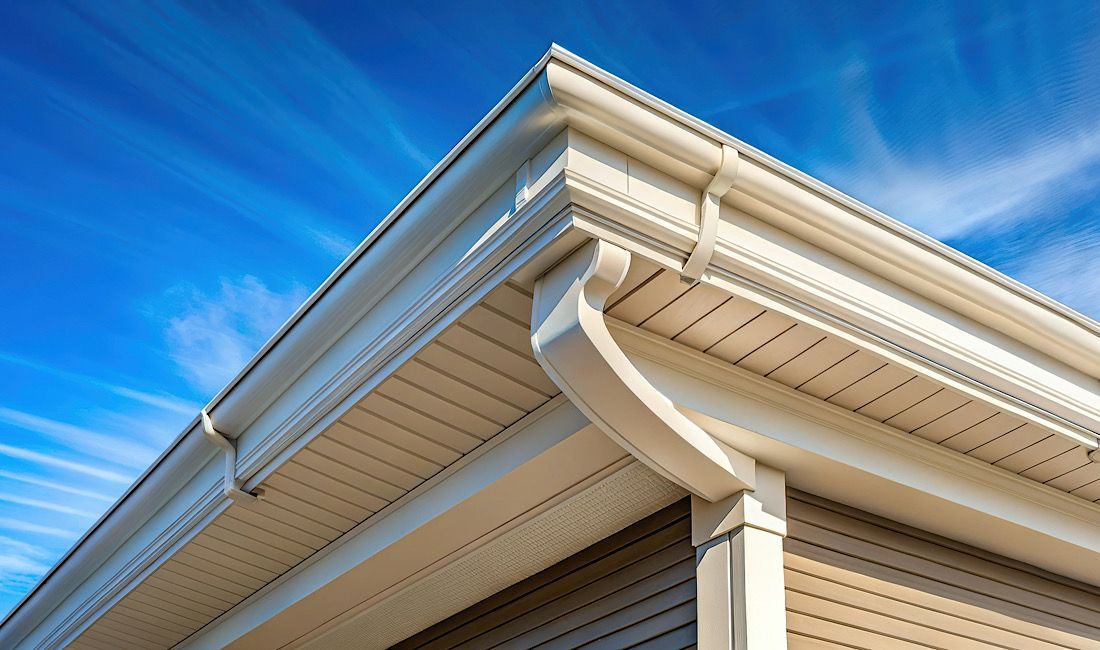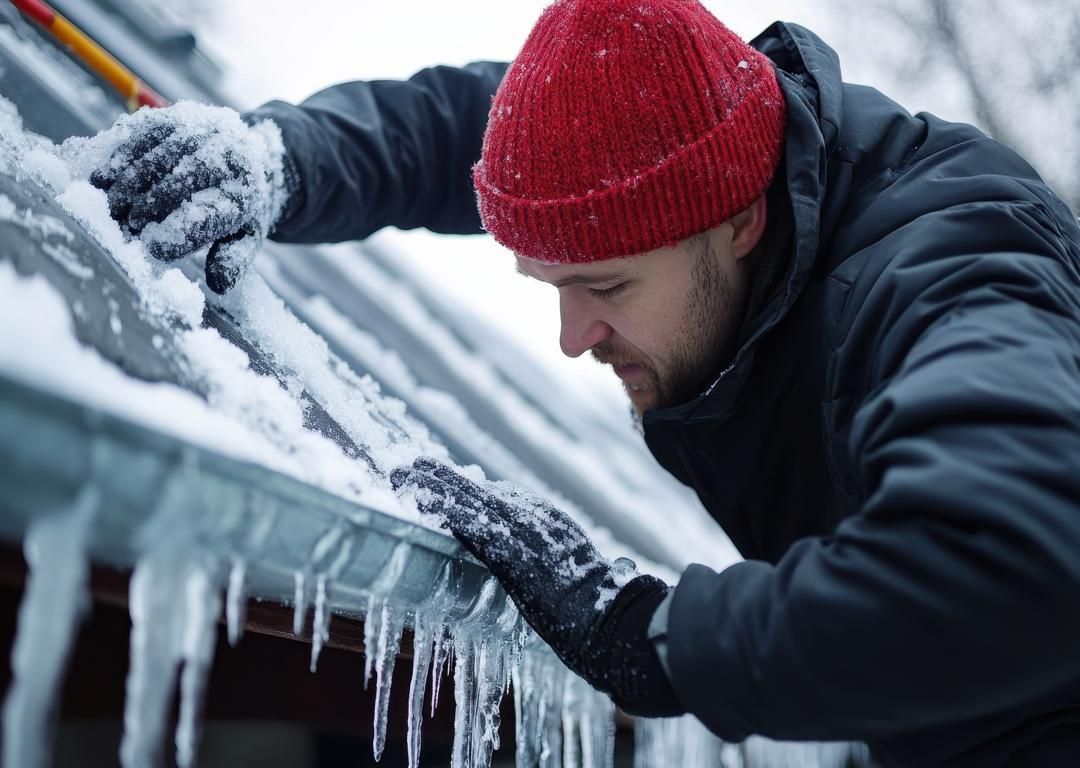The Marshall Fire Highlights the Need to Keep Your Gutters Clear of Flammable Material
Learning how to prevent house fires is not just a way to protect an investment; it could save a life. Below, Gutter Helmet® unpacks some of the key lessons for property owners in the wake of the devastating 2021 Marshall fire in the Denver, Colorado area.
Denver’s Marshall Fire: The Dangers of a Flammable Roofline
On December 30, 2021, a wildfire tore through Denver, Colorado. It destroyed over 1,000 structures, damaging many more, with at least one person and countless pets losing their lives to the blaze. Dubbed ‘The Marshall Fire,’ it burned hot enough to create a firestorm with winds over 105 miles per hour, leaving many residents helpless to save their homes and possessions.
Afterward, there was much debate around the causes and prevention of wildfires. One of the most prominent conclusions surrounded the many dangers of a flammable roofline for residential and commercial buildings. The Marshall Fire clearly demonstrated that homeowners and businesses in fire-prone areas need to be more proactive in learning how to prevent house fires in the future.
Are Denver Residents At Greater Risk Than Others?
On January 11, 2022, The Denver Post quoted a University of Colorado scientist, Jennifer Balch, saying that the residents of Denver are “sitting ducks” in the face of increasingly violent natural disasters. Rising air temperatures, drier air, and plenty of new construction in the suburbs all contribute to the risk of wildfires for the area’s suburban residents.
Even during the winter months, after leaves have fallen from trees, Denver’s homes and businesses may be at risk of fire damage. Is there a way to take action? Absolutely.
What Can Residents Do to Protect Themselves from Wildfires?
Most homeowners cannot withstand the full force of a firestorm, but Denver and nearby communities can take measures that will contain wildfires quickly. These proactive tasks reduce the risk by making it difficult for wind-blown sparks to ignite homes or spread.
Learning how to prevent house fires starts with paying attention:
● Be attentive to weather broadcasts and alerts
● Know the escape plan and who to call for help
● Develop good fire safety habits around the property
● Secure the home against the threat of fire
A Fire-Safe Roof is an Excellent Start
Many aspects of roofing play into the spread of fires, and homeowners can begin their preparation by looking at gutters and other aspects of the roofline.
How Do Clogged Gutters Increase the Risk of Fire Damage?
Clogged gutters are a critical weak point in a home’s fire protection strategy. While roofing, siding, and decking might catch fire, the dry leaves and twigs that collect inside the gutters are particularly effective kindling. It is such a critical issue that clean gutters might make the difference between a harmless smoldering ember and a conflagration that consumes the entire structure. In addition, burning leaves and pine needles are light weight and can be blown easily to other structures increasing the risk of spreading.
What Danger Does a Flammable Roofline Represent?
The roofline is exceptionally vulnerable to wildfires because of its position and slope that put it in the path of flying debris. A stray ember might roll along a deck or glance off a window shutter without stopping long enough to set alight the wood, paints, or sealants. However, debris caught in the roofline is a huge fire hazard; it burns readily, staying in place long enough to start a serious fire.
Will Cleaning The Gutters Safeguard the Roof from Potential Fires?
Wildfires are an inevitable fact of life in the Greater Denver and Northern Colorado area. Allowing debris, fallen leaves, and other combustible materials to clog the gutters makes the entire home vulnerable to a blaze. Rather, check the gutters frequently for debris and get rid of any flammable material that collects in these areas.
Cleaning the gutters does carry some risk of a fall or roof damage, and it takes a lot of effort. One solution is Gutter Helmet®, a gutter guard carefully designed to keep flammable material out of the roofline, preventing fires.
How Gutter Guards Keep A Home Fire Safe
How does Gutter Helmet® work to keep a home fire safe? It effectively creates a layer of protection, extending from the roof and hanging over the gutters with a “nose forward” design. The surface of the Gutter Helmet® slopes downward continuously so that water, dead leaves, and debris harmlessly roll off the roof.
Is Gutter Helmet the Same as Flat Gutter Guards?
The strengthening texture and a PermaLifeTM coating in Gutter Helmet® products stand up beautifully to the elements, protecting the home for many years. A flat gutter guard rests on top of the gutters, which might keep debris out but will not prevent fires as effectively. Flat designs still create a shelf where leaves and other flammable materials collect easily.
Instead, the Gutter Helmet® design ensures the kindling material does not stick around long enough to pose a fire risk when the region’s hottest, driest days arrive in full force.
Denver Fire Prevention and Fire Safety Tips
Experts advise ‘hardening’ homes against the risk of wildfires, as even city homes might not be completely safe with rising temperatures and more powerful storms. Residents should know how to prevent house fires, and it takes more than remembering to switch off the stove when you leave the kitchen.
A fire-safe home will:
● Keep gutters, decks, and lawns clear of debris, especially dry leaves and wood chips
● Place heating sources far away from flammable material
● Install fire-resistant covers on rooftop vents
● Use non-flammable roofing material, such as metal or clay tiles
● Opt for dual-pane windows of tempered glass
● Secure the home’s outer façade with fire-resistant wood, stucco, metal siding, or other fire-resistant material
The tips above might require some large-scale renovations. If this is not an option, the average homeowner will do well to take advantage of Gutter Helmet® technology to minimize the risk of fire.
In fact, Jefferson county has added building code Z104.4 for high risk areas to provide gutter protection in an effort to reduce fire risk. Unlike screen mesh products, Gutter Helmet will not allow pine needles and other debris to collect on top of the gutter guards, making it a superior solution.
Choose Gutter Helmet® For a Fire-Safe Home
Residents in the Greater Denver and Northern Colorado area should not ignore the cautionary tale of the Marshall Fire. Taking the right steps will reduce the risk to your home and everybody in it when the next wildfire strikes. Thankfully, Gutter Helmet® is an affordable, highly effective solution for a fire-safe home.
Knowing how to prevent house fires is choosing peace of mind—call Gutter Helmet® Denver at (303) 298-8888 today and protect your home against water damage, ice dams, and wildfires.
Contact Gutter Helmet® Today
Contact us today to schedule a free in-home consultation.
gutterhelmetdenver.com
303.298.8888



